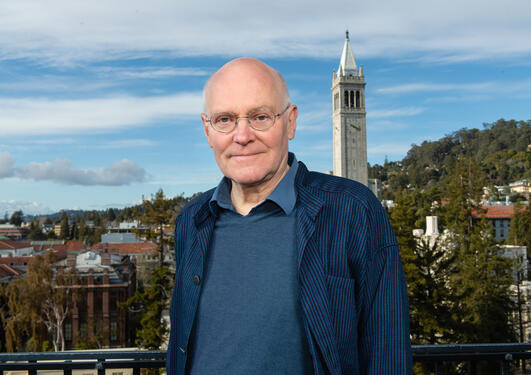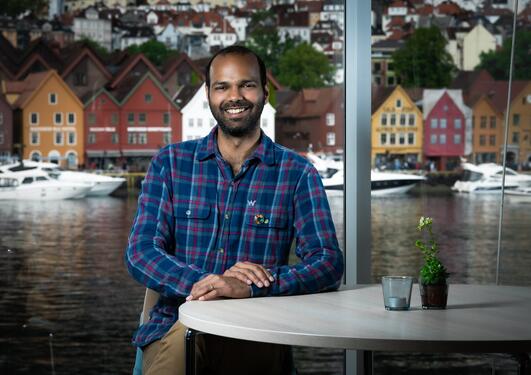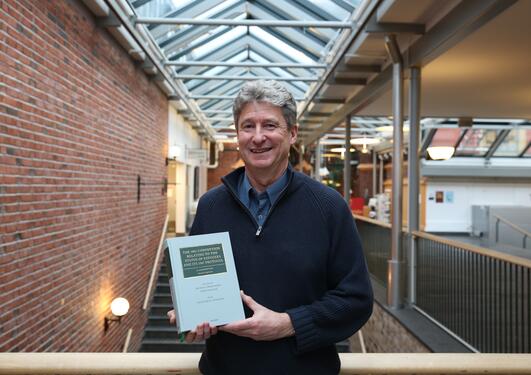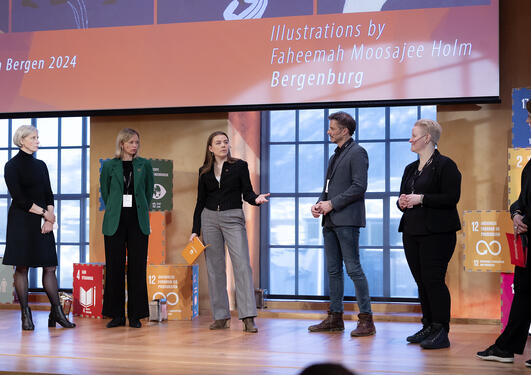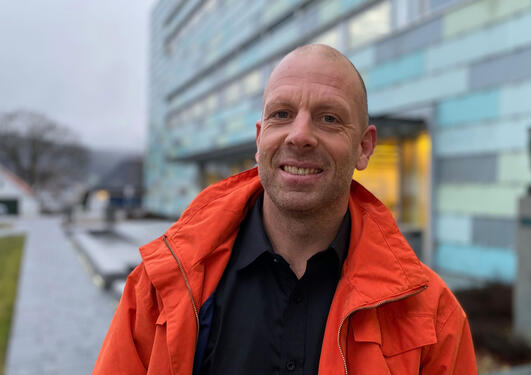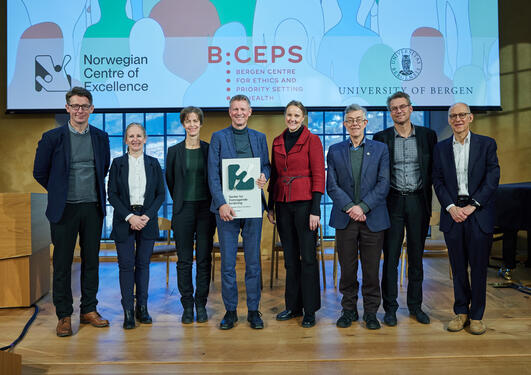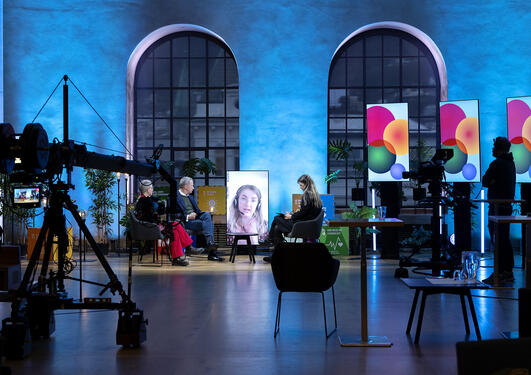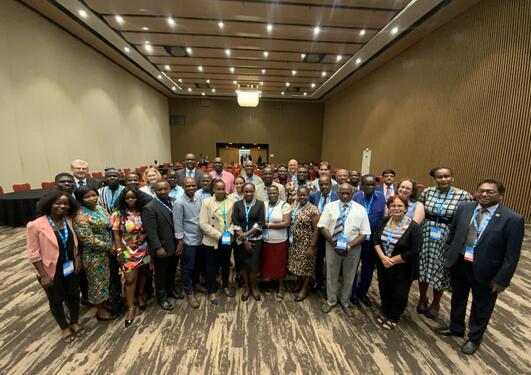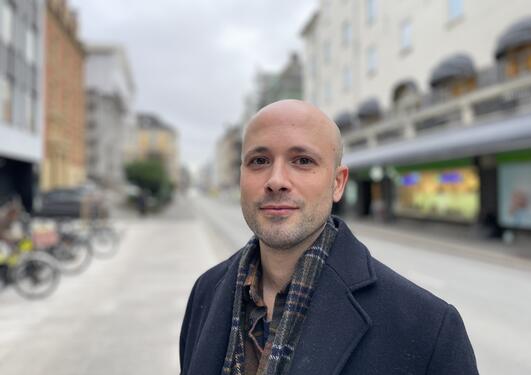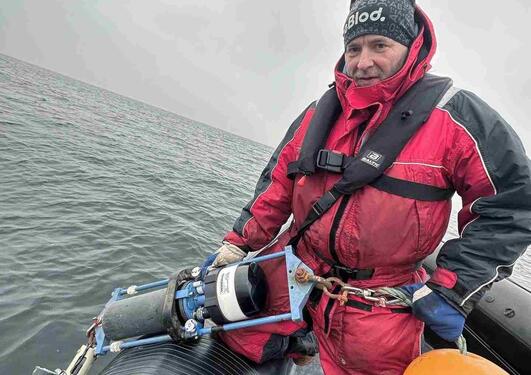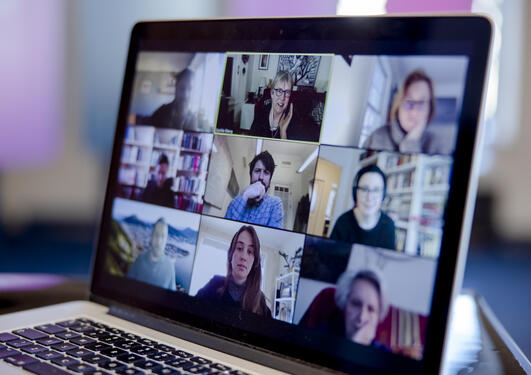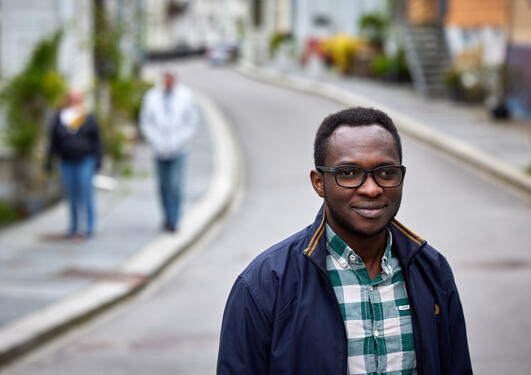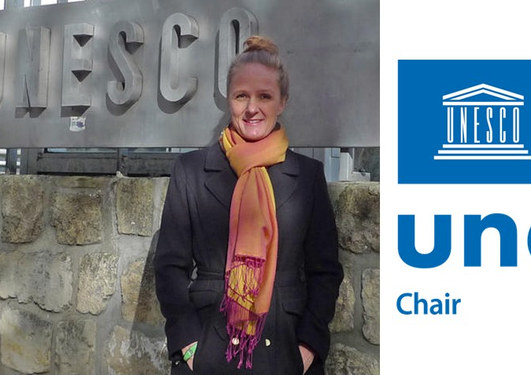News archive for Global Challenges
«The efforts of professor Trond Petersen has been really important in developing research collaboration and student exchange between Norwegian universities and the University of Berkeley,» says Jan Erik Askildsen, dean of the Faculty of Social Sciences.
On 21 February 2024 the University of Bergen and partners organized an event on ocean governance at Norway House in Brussels. The discussions at the event and an outcome discussion has now resulted in the first Ocean Futures 2030 Policy Brief.
Today it was announced that CET Professor II Siddharth Sareen is the Nils Klim Laureate 2024 for his work in environmental social sciences.
Professor Terje Einarsen is the editor of the newly published commentary on the UN Refugee Convention.
The 2024 conference consisted of both a digital day with talks and debates in English, where around 1300 people participated, and a physical conference day in Norwegian.
«We are well aware that a significant change is necessary. We have the knowledge that is needed. Now we must figure out what to do,» professor Håvard Haarstad at UiB says. The seventh SDG Conference in Bergen will be held from 7.-9. February. We ask: What should be the role of universities?
Researchers come to Bergen from all over the world to solve global challenges. Simon Øverland has invited some of them to tell us about some solutions for the future.
On Monday 8 January, the official opening of BCEPS Centre of Excellence took place in the university aula. The centre will develop new methods and ethical frameworks to help decision-makers in ensuring a fairer distribution of health services.
Welcome to the digital and free SDG Conference in Bergen 2024! The theme is Take a look at the programme and register today.
The Water ESSENCE Africa project organized an excellent and well-visited workshop during the International Water Association’s Congress in Kigali, Rwanda discussing how universities can contribute towards achievement of SDG6, Clean Water and Sanitation.
Populist far-right parties portray fossil fuel phase-out as a threat to traditional family values, regional identity, and national sovereignty, according to researchers at UiB.
This may contribute to the political marginalization of individuals with a strong need to be heard, according to researchers.
When Nagaoka University of Technology in Japan hosted a hybrid event to showcase links between science and business, UiB’s industry partner Aanderaa stepped up to the challenge. The event originated in the university’s international commitments towards Sustainable Development Goal (SDG14), Life Below Water.
“There are huge knowledge gaps regarding the deep sea. My scientific project is to help fill some of those knowledge gaps,” says researcher Pedro Ribeiro. Inadvertently, this has led him and his colleagues into the hot topic debate on deep-sea mining.
Somewhat surprisingly, Norway finds itself at the bottom alongside Romania, in a study of trust in child welfare services in six European countries.
We now welcome applications to host an event as part of Day Zero at the SDG Conference Bergen, 7 February 2024.
As consumers we are often encouraged to limit our intake of red meat and dairy, for the benefit to both our health and to the environment. But what happens if we drop meat when we get older?
UiB's UNESCO Chair on Sustainable Heritage and Environmental Management - Nature and Culture was recently up for renewal, and four new years were granted on September 18. Professor Inger Elisabeth Måren (Department of Biological Sciences) continues as the chair holder.
Pages
- April 2024 (1)
- March 2024 (3)
- February 2024 (2)
- January 2024 (2)
- December 2023 (3)
- November 2023 (2)
- October 2023 (2)
- September 2023 (5)
- August 2023 (2)
- June 2023 (3)
- May 2023 (4)
- April 2023 (4)
- March 2023 (6)
- February 2023 (3)
- January 2023 (3)
- November 2022 (2)
- September 2022 (1)
- June 2022 (2)
- May 2022 (2)
- April 2022 (3)
- March 2022 (1)
- February 2022 (2)
- January 2022 (1)
- December 2021 (2)
- November 2021 (1)
- October 2021 (4)
- September 2021 (1)
- August 2021 (1)
- July 2021 (1)
- June 2021 (7)
- May 2021 (4)
- April 2021 (2)
- March 2021 (7)
- February 2021 (4)
- January 2021 (1)
- December 2020 (5)
- November 2020 (5)
- October 2020 (3)
- September 2020 (1)
- August 2020 (1)
- July 2020 (2)
- June 2020 (7)
- May 2020 (3)
- April 2020 (5)
- March 2020 (3)
- February 2020 (4)
- January 2020 (3)
- December 2019 (2)
- November 2019 (4)
- October 2019 (7)
- September 2019 (3)
- August 2019 (3)
- July 2019 (6)
- June 2019 (2)
- May 2019 (3)
- April 2019 (3)
- March 2019 (2)
- February 2019 (4)
- January 2019 (3)
- December 2018 (1)
- November 2018 (4)
- October 2018 (3)
- September 2018 (3)
- August 2018 (2)
- July 2018 (6)
- June 2018 (3)
- May 2018 (1)
- April 2018 (1)
- March 2018 (5)
- February 2018 (5)
- January 2018 (3)
- December 2017 (1)
- November 2017 (4)
- October 2017 (2)
- September 2017 (2)
- August 2017 (1)
- July 2017 (1)
- June 2017 (6)
- May 2017 (3)
- April 2017 (1)
- March 2017 (1)
- January 2017 (1)
- November 2016 (1)
- June 2015 (1)
